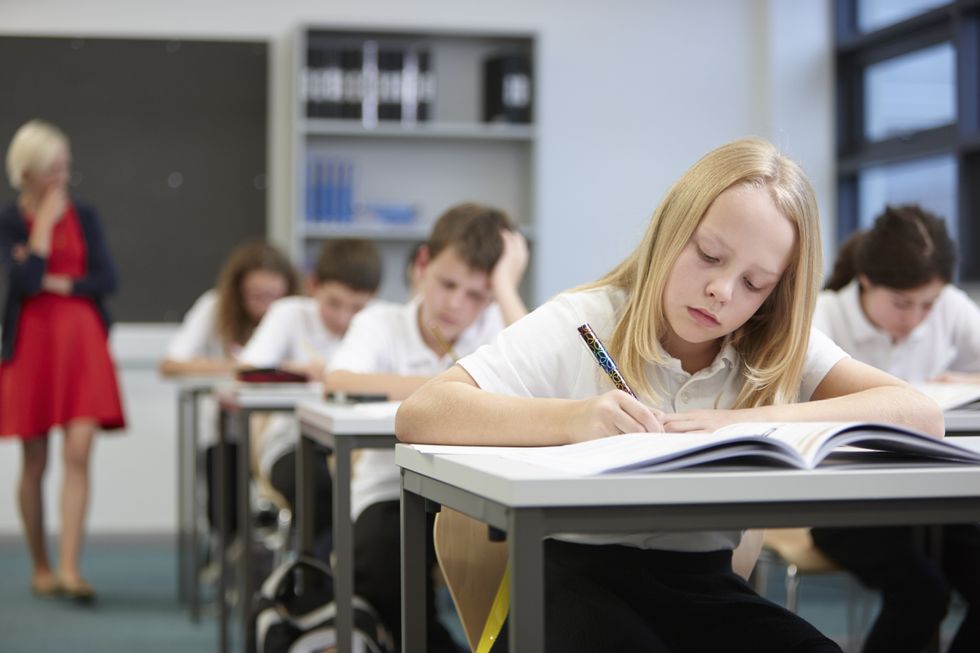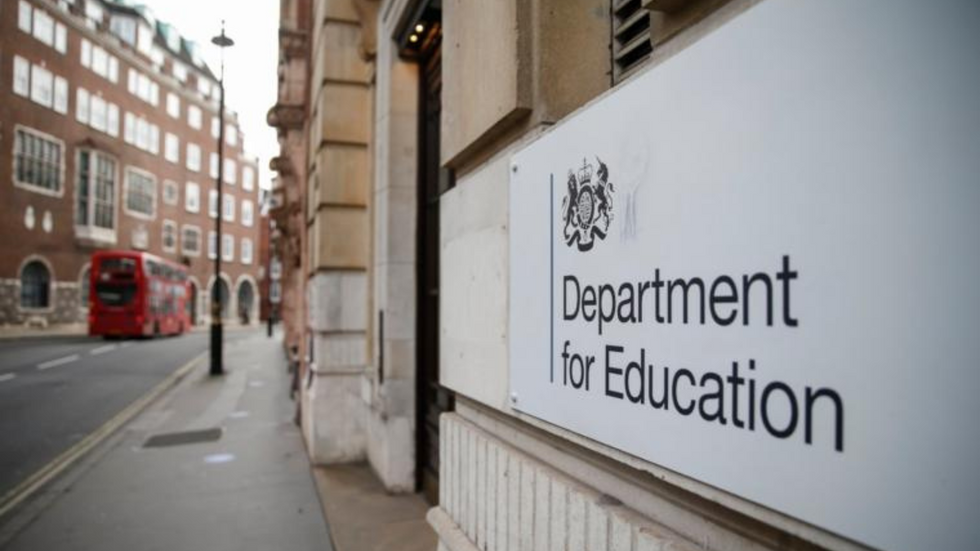Children excluded while at primary school almost always fail key GCSE exams

The Department for Education's behaviour tsar Tom Bennett slated the report, saying 'the idea that suspensions and exclusions somehow cause these later life problems is completely unevidenced'
Don't Miss
Most Read
Latest
Over 90 per cent of children who are excluded from primary school will not pass their English and maths GCSEs, a new study has found, in a damning report which has seen the Government slated for "failing" pupils.
The study, commissioned by charity Chance UK, which campaigns against suspending and excluding primary-age students, uncovered figures it said showed exclusions would "start a devastating never-ending cycle of difficulties" for children.
It found 88 per cent of pupils who were permanently excluded from primary school would not go on to achieve a grade 4 - the "pass" mark - in GCSE English, compared to 25 per cent of pupils without a suspension or exclusion, the report found.
While 80 per cent of pupils permanently excluded in primary schools wouldn’t go on to pass GCSE maths - compared with 27 per cent of their peers.

Chance UK said its figures showed exclusions would "start a devastating never-ending cycle of difficulties" for children (file photo)
|Getty
The report found that disadvantaged children were at a much greater risk of expulsion or suspension than their peers; of primary school pupils who had been excluded, 97 per cent had a special educational need or disability, 67 per cent had received free school meals, and just under 60 per cent had been assigned 'Child in Need' status by social services.
As a result, Chance UK are advocating for "ring-fenced funding" for specialist support in primary schools and "regular statutory training for all school staff and trainee teachers" on best practice to reduce exclusions.
But the Department for Education hit back at the findings, with its behaviour management adviser Tom Bennett - a hardline proponent of discipline in schools - claiming the report had mixed up "correlation and causation".
Bennett said: "The idea that suspensions and exclusions somehow cause these later life problems is completely unevidenced, when it is obvious to anyone working with these children that it is their behaviour that causes both.
MORE EDUCATION NEWS:
- As a Conservative I believe firmly in a good education being the key to a good future, says Anna Firth
- If a country wishes to see its economy in 20 years’ time it needs to look at its education system today, says Chris McGovern
- Too few kids get to study creative subjects at school, says Labour's Bridget Phillipson

The DfE's behaviour management adviser Tom Bennett claimed the report had mixed up "correlation and causation".
|Getty
"Students who attack other children, or teachers, or abuse or harass others tend to get suspended or excluded if the behaviour persists long enough.
"And that behaviour, if sustained in life, frequently leads to lack of later life success. It's bizarre to think otherwise."
But union leaders backed the figures, and took aim at UK schools' "decimated" support services and a "toxic" combination of policy choices which has left vulnerable children behind.
Niamh Sweeney, the NEU teaching union's deputy general secretary, backed the study's call for specialist services - but warned that "decimated" support services have been "leaving schools and families to cope on their own".
Sweeney added: "The report reinforces what many have been saying for years: that the toxic combination of financial cuts, staffing shortages, increasing class sizes and a narrowed and restrictive curriculum is severely impacting young people’s educational prospects."
While Darren Northcott, the NASUWT teaching union's national education official, said pupils were being "failed" by "slow and under-resourced" special needs support.
Former children's commissioner Anne Longfield said Britain's education system was "failing to meet the needs of some of our most vulnerable children" and led to a "carousel of classroom disruption, suspension and exclusion, frequent school moves, and very poor educational outcomes".
Though Paul Whiteman, general secretary of the NAHT school leaders’ union, said exam grades are "rarely a result of one factor alone", adding that suspensions and exclusions were only used as a "last resort".
"Schools work hard to help children secure support when they face challenges in their lives which can impact their behaviour, wellbeing, and academic attainment", Whiteman said, though he warned that they "cannot resolve these complex issues alone".











